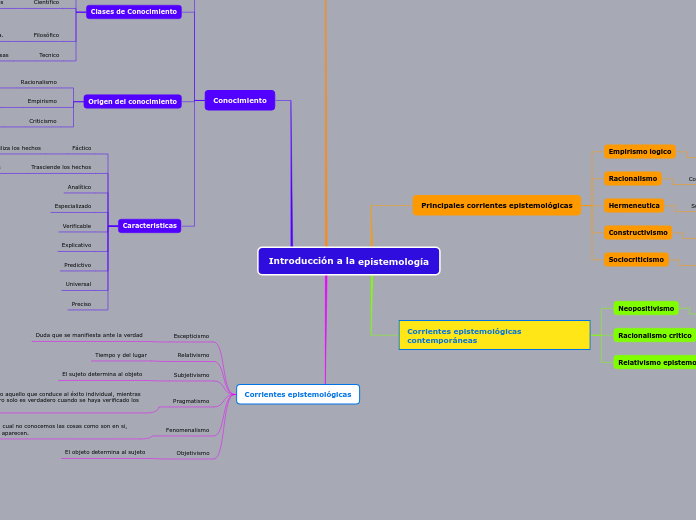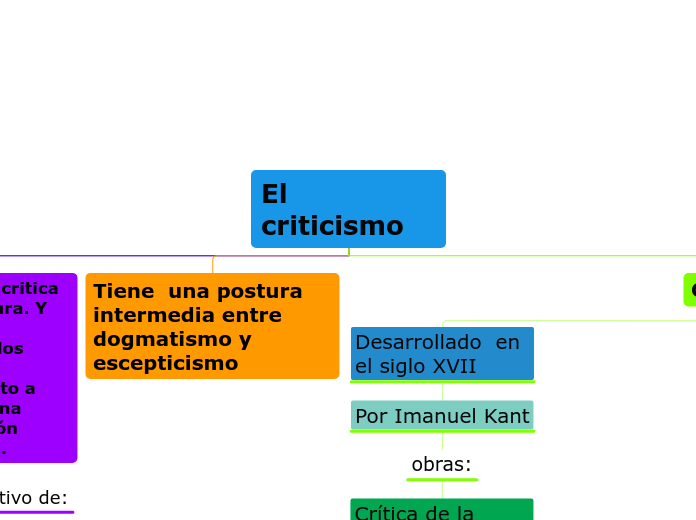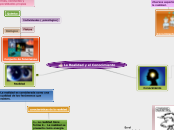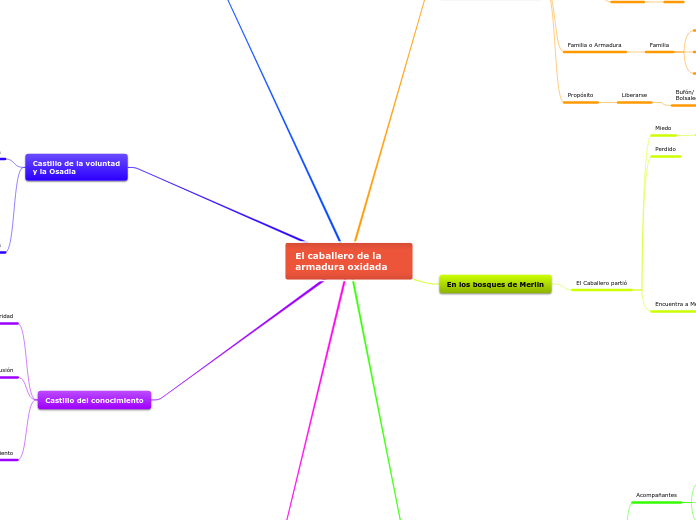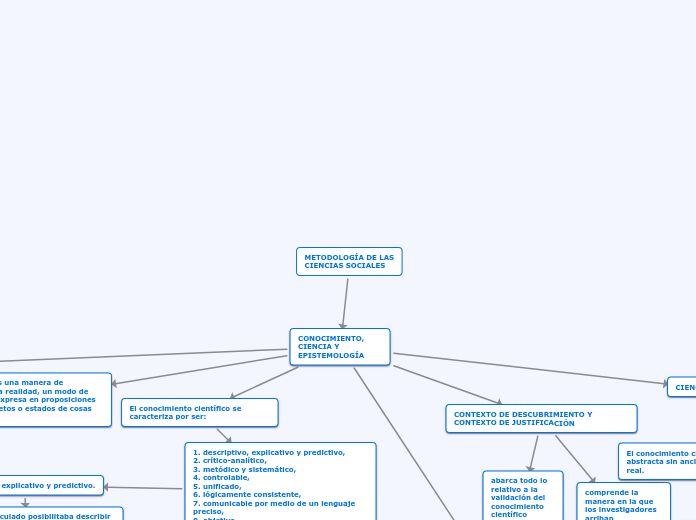Conjunto de conocimientos objetivos y verificables sobre una materia determinada, que son obtenidos mediante
Introducción a la epistemología
In linguistics, syntax is the set of rules, principles, and processes that govern the structure of sentences in a given language, usually including word order.
Corrientes epistemológicas
Objetivismo
El objeto determina al sujeto
Fenomenalismo
Teoría sobre el cual no conocemos las cosas como son en si, sino como nos aparecen.
Es verdadero aquello que conduce al éxito individual, mientras que para otro solo es verdadero cuando se haya verificado los hechos.
El sujeto determina al objeto
Relativismo
Tiempo y del lugar
Escepticismo
Duda que se manifiesta ante la verdad
Conocimiento
A compound sentence is a sentence that has at least two independent clauses joined by a comma, semicolon or conjunction. An independent clause is a clause that has a subject and verb and forms a complete thought.
Caracteristicas
Preciso
Universal
Predictivo
Explicativo
Verificable
Especializado
Analítico
Trasciende los hechos
Elabora teorías e hipótesis
Fáctico
Utiliza los hechos
Origen del conocimiento
El origen es la razón y la experiencia
Empirismo
El origen es la experiencia
El origen es la razón
Clases de Conocimiento
Create your own compound sentences, using the coordinators above.
Tecnico
Como están estructuradas las cosas
Filosófico
Indaga por el sentido de la existencia.
Científico
Rasgos esenciales
Objetivo
Observación y experimentacion
Racional
Conceptos juicios no creencias
Empírico
Relaciona la experiencia con la realidad
Teorías del conocimiento
When independent clauses are joined with coordinators (also called coordinating conjunctions), commas and semicolons, they do more than just join the clauses. They add meaning and flow to your writing.
Pragmatismo
La practica produce la verdad y validez del conocimiento
Criticismo
Todo conocimiento debe someterse a un examen y critica antes de aceptarlo.
Subjetivismo
Depende de la experiencia y circunstancia del individuo
Ciencia
A complex sentence is a sentence that contains an independent clause and one or more dependent clauses.
An independent clause can stand alone as a sentence, but a dependent clause even though it has a subject and a verb cannot stand alone.
Formulación y explicación de hipótesis
Explicación de principios y causas
The subject clause is a dependent clause that acts as a subject.
Experimentación
A predicative clause may be introduced by conjunctions - that, whether, whether... or, as, as if, as though, because, lest, the way - or connectives.
The latter may be conjunctive pronouns - who, whoever, what, whatever, which - or conjunctive adverbs - where, wherever, when, whenever, how, why.
The question is whether we can manage without him.
Observación
The object clause is a phrase on which a verb performs an action. It falls at the end of a sentence, and is governed by a verb or a preposition.
Add example
Corrientes epistemológicas contemporáneas
Relativismo epistemologico
See the example below and try to create your own simple sentences.
Tim is driving the car with his mother.
Cambio de paradigmas
Racionalismo critico
See the example below and try to create your own simple sentences.
Tim is the driver.
Cuestiona el principio de la verificación
Neopositivismo
See the example below and try to create your own simple sentences.
Tim drives the car.
Se relaciona con el método inductivo
Principales corrientes epistemológicas
Sociocriticismo
An adverbial is an individual word (that is, an adverb), a phrase, or a clause that can modify a verb, an adjective, or a complete sentence.
Cuestiona afirmaciones científicas
Constructivismo
The attribute is defined as a quality or characteristic of a person, place or thing.
Interrelaciones del individuo
Hermeneutica
The predicative is defined as an adjective or noun forming or contained in the predicate.
Its main trait is that it serves to express a property that is assigned to a 'subject'.
For e.g.: The dog is old.
Subjetividad
Racionalismo
The predicate of a sentence is the part that modifies the subject in some way. Because the subject is the person, place, or thing that a sentence is about, the predicate must contain a verb explaining what the subject does and can also include a modifier.
Conocimiento se deriva de la razón
Empirismo logico
The subject of a sentence is the person, place, thing, or idea that is doing or being something. You can find the subject of a sentence if you can find the verb.
Ask the question, 'Who or what 'verbs' or 'verbed'?' and the answer to that question is the subject.
Experiencia o percepción sensible
